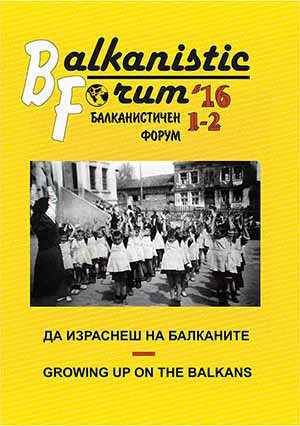Различните аспекти на социалните роли на мъжа и жената в циганското/ромското семейство се учат още от ранна детска възраст
Various aspects of the men and women’s social roles in the Gypsy family acquired at an early age
Author(s): Evgenia I. Ivanova, Velcho KrastevSubject(s): Ethnohistory
Published by: ЮГОЗАПАДЕН УНИВЕРСИТЕТ »НЕОФИТ РИЛСКИ«
Keywords: Roma, boy, girl, social roles, kardashari, ficheri, kopanari
Summary/Abstract: The group consciousness has a strong and long lasting impact on the biases and attitudes towards children. Children are specific members of the Romagroups. They live in enlarged families of several generations and they have to socialize in such communities. The children follow the behavior patterns of the adults. They live together with them in the private and public sphere – the neighborhood, and are considered as members not only of the families but of the group as a whole. The aim of the research is to consider the criteria for upbringing Roma girls and boys based on the comprehension of different traditional roles of the males and females in the Roma societies. The boy, being the family’s pride is more free. The limitations imposed on him are symbolic. He is brought up to show high self- esteem, not just as a man, but also as the future head of the family, as a bearer and protector of the family prestige. The approach applied to girl’s upbringing is a lot more demanding, and the requirements – heavier.
Journal: Балканистичен Форум
- Issue Year: 2016
- Issue No: 1-2
- Page Range: 285-290
- Page Count: 6
- Language: Bulgarian
- Content File-PDF

